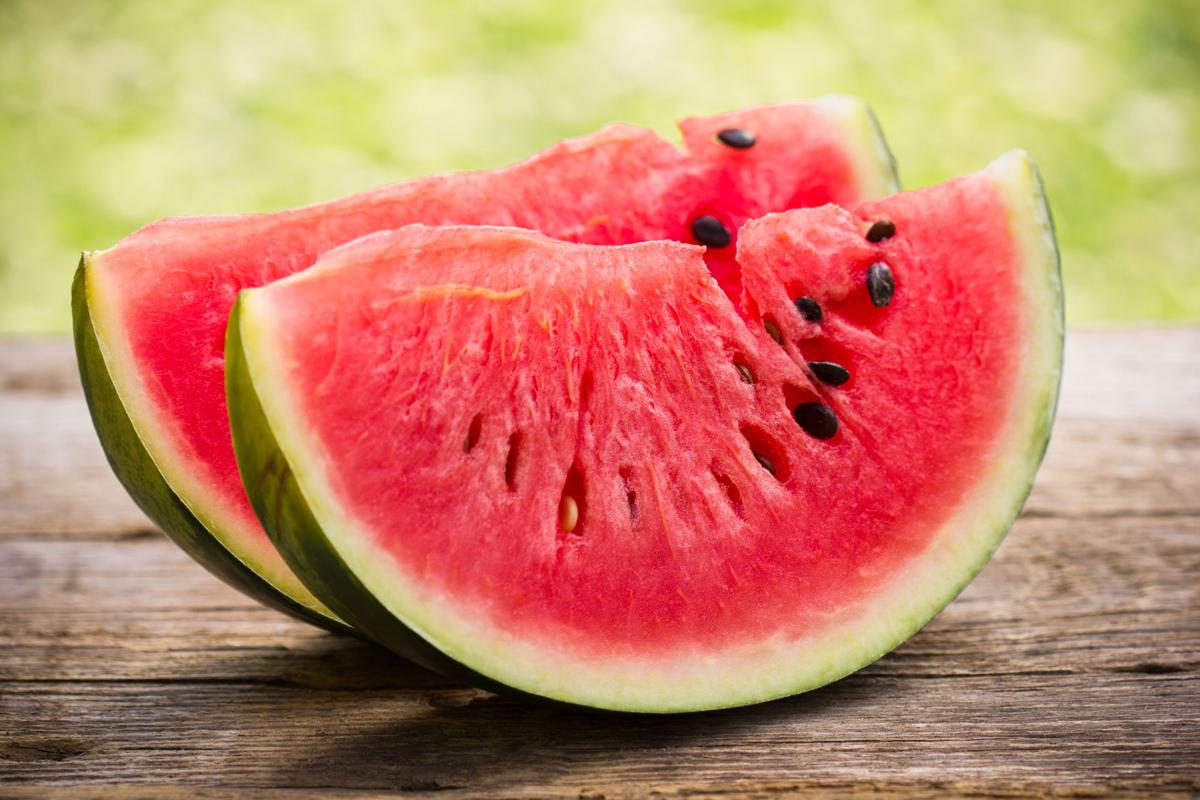
Using models of various foods (we dietitians always play with our food), I asked a patient to identify which ones contained carbohydrates. She correctly noted bread and rice and pasta. When I held up a piece of fruit, she was surprised.
“Fruit has carbohydrates?”
Yep, from fructose … fruit sugar, I explained. But that’s not a bad thing. Our bodies need carbs to fuel our muscles and brains.
“My favorite is watermelon,” she said. “Is that good?”
Very good, I said. Here are a few reasons:
Watermelon provides fluids. “Water” melon, get it? In fact, 92 percent of this fruit is water, making it also low in calories. According to an article on this topic in the June issue of Food and Nutrition magazine, one measuring cup of watermelon chunks has just 46 calories plus a healthy dose of vitamins A and C — nutrients that strengthen our immune system and make our skin glow.
Watermelon has 40 percent more lycopene than raw tomatoes. Lycopene is the pigment that gives watermelon (and tomatoes) their bright red color. This substance has been found to be a potent antioxidant that may play a role in lessening our risk for cancer, heart disease and an eye disease called macular degeneration.
Watermelon has a small dose of potassium. So people who must avoid excessive amounts of potassium in their diets (such as those with kidney disease) can still enjoy watermelon. One cup of watermelon contains 170 milligrams (mg) of potassium compared to 388 mg for the same amount of honeydew melon and 427 mg for cantaloupe. Potassium is essential for many body processes and plays a critical role in the control of blood pressure.










